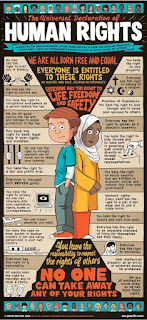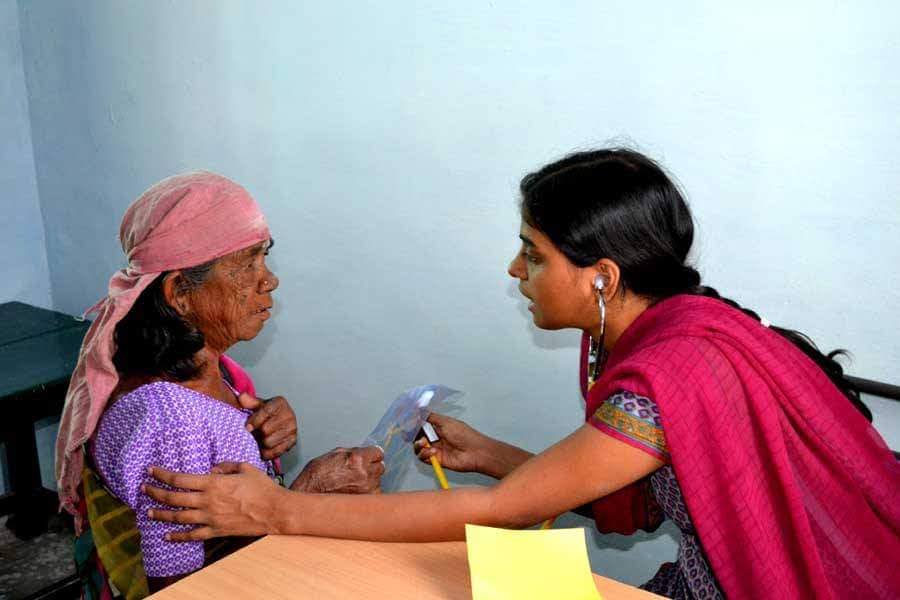Directive principles?
"Look at their religion , they are commenting us for patriarchy" - Hindus and Muslims on the Catholic nun molestation case .
"Ask them to respect women at least ,then they can bother about sabarimala" - Hindus and Christians on triple talaq verdict
" Purity and menstruation has no correlation. When will the RSS Hindus learn?" - Christians and Muslims on ayyapa devotees .
It is confusing to read the news nowadays. The basic human rights and respect for a gender has been totally left out in pro and anti feminist issues. The whole idea of equality is forgotten and the problems are merely discussed for blame game . But where are we heading towards?
It is more complex than I thought. I wanted to find a reliable answer for the prevailing social inequality .By which I mean, inequality prevailing in our country based on religion, gender, caste, creed, community , geography and of any other similar sort.
Before going into a debate of what is right and wrong, I wanted to know about the rights of an individual . I stumbled upon this document which clarifies,defines and give answers to most of the Indian scenario nowadays.
" Universal declaration of Human rights " is a very important historical landmark in establishing a uniform declaration for human rights around the globe and encouraging every other country to do the same . This was declared and signed in
1948 and to a greater extent affected the constitution of India which was being written at the same time.There are a few articles which I thought is very very relavent to the present.
1948 and to a greater extent affected the constitution of India which was being written at the same time.There are a few articles which I thought is very very relavent to the present.
Article 2 - Everyone is entitled to all the rights and freedoms set forth in this Declaration, without distinction of any kind, such as race, colour, sex, language, religion, political or other opinion, national or social origin, property, birth or other status
Article 3 - Everyone has the right to life, liberty and security of person
Article 18 - Everyone has the right to freedom of thought, conscience and religion; this right includes freedom to change his religion or belief, and freedom, either alone or in community with others and in public or private, to manifest his religion or belief in teaching, practice, worship and observance.
Though these fundamental rights is for every human being born in this earth, the idea was little disturbed in the republic of India .
My next stop, was obviously India 's take on human rights . I m like ,any other adult who considered fundamental rights as a question I read every year in civics and never thought of its implications.
So, our Constitution has established the rights of citizens in two separate articles . Yes, they are mentioned at two different places ,
As fundamental rights in article 3 and directive principles in article 4.
As fundamental rights in article 3 and directive principles in article 4.
Right to equality,
Right to freedom of speech and expression,
Right against exploitation,
Right to freedom of conscience and free profession, practice, and propagation of religion,
Right of any section of citizens to conserve their culture, language or script, and right of minorities to establish and administer educational institutions of their choice; and
Right to constitutional remedies for enforcement of Fundamental Rights
And there is this separate directive principles which is on article 4 ,
"State shall strive to promote the welfare of people by securing and protecting as effectively as it may, a social order, in which justice-social, economic and political-shall form in all institutions of national life."
Also it goes on to say
"State shall drive its policy in such a manner as to secure distribution of ownership and control of material resources of community to subserve the common good, and to ensure that operation of economic system does not result in concentration of wealth and means of production to common detriment.
"State shall drive its policy in such a manner as to secure distribution of ownership and control of material resources of community to subserve the common good, and to ensure that operation of economic system does not result in concentration of wealth and means of production to common detriment.
Some of the other important directives relate to provision of opportunities and facilities for children to develop in a healthy manner; free and compulsory education for all children up to the age of 14; promotion of education and economic interests of scheduled castes, scheduled tribes and other weaker sections; organisation of village panchayats; separation of judiciary from executive; promulgation of a uniform civil code for whole country; protection of national monuments; promotion of justice on a basis of equal opportunity; provision of free legal aid; protection and improvement of environment and safeguarding of forests and wildlife of the country; promotion of international peace and security; just and honourable relations between nations; respect for international law; treaty obligations; and settlement of international disputes by arbitration."
The difference between fundamental rights and directive principles is that the only fundamental rights are justiciable.
Which means only fundamental rights can be legally enforced by court of law and directive principles are not .
Which means fundamental rights related more to an individual s rights can only be legally challenged if deprived and not the directive principles which defines the social and economic equality.
And I really don't understand. For a person like me , who has very little knowledge or even no knowledge about Indian Constitution , this has made me more confused. I went looking for an answer and have ended in a much bigger question.
Why , a country like India with social and economic inequality are a part of daily life has made the directive principles not justiciable?
I will be totally happy to have a conversation with an enlightened mind for an answer!



It's all because the country has vast diversity and backwardness. It would have been tough to bring everyone under one single law at the time the Indian constitution was framed. To implement DPSP (Directive Principles of State policy), the country should have sufficient resources which was not there by then. So, the framers decided to have the rights classififed into two, one as justiciable and other non-justiciable. This DPSP directs a state in the country to have this principles in my mind while enacting a law. There were many instances where the state had taken steps to implement few DPSP by enacting a law.
ReplyDeleteIf Fundamental Rights and Directive Principles were justiciable, India would be a great place to live. The real force behind implementing DPSP is the political force. So, the politics decided what will become a law and what not.